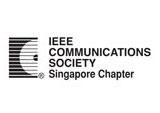OUR SPONSORS
The ECE NUS Graduate Student Symposium 2015 will not be possible without the generous support of our sponsors. We're very pleased
to present to you the organizations supporting the symposium.
The Department of Electrical & Computer Engineering (ECE) is the largest department in the Faculty of Engineering at NUS, with about 100 tenured / tenure-track faculty and about twice the number of staff (teaching, research, technical support and administrative support). The Department has grown since its inception and has now an academic staff strength of over 100, undergraduate students of about 1500 (~1030 students in B.Eng (Electrical) programme, ~490 students in B.Eng (CEG/Computer) programme, and some 670 graduate students (~380 PhD, ~50 MEng, ~230 MSc).
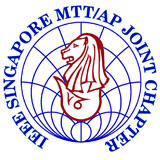
The mission of the MTT/AP Society Singapore Chapter is to serve the interests of its members and the community at large by promoting the
theory, practice, and interdisciplinary aspects of microwave engineering, antennas, wave propagation, and electromagnetics.
It is accomplished through conferences, publications, as well as other technical and social activities that contribute to
the professional needs of its members. To date, the Chapter has 5 Fellows, 31 Senior Members and 99 Members, and is one of
the most active Chapters in the IEEE Singapore Section.
The IEEE Communications Society Singapore Chapter is a community comprised of a diverse group of industry professionals with a common
interest in advancing all communications technologies. To that end, the Society sponsors publications, conferences,
educational programs, local activities, and technical committees that: Foster original work in all aspects of communications
science, engineering, and technology.
The IEEE Control Systems Society is dedicated to the advancement of research, development, and practice in automation and control systems.
It has broad technical interests in dynamical systems and control that include modeling, adaptation, estimation, optimization, feedback
and software/hardware tools. Application areas include aerospace, automotive, biosystems, communication networks, finance and markets, homes
and buildings, manufacturing and process industries, and micro/nano-systems.

TThe IEEE Computer Society is the world’s leading computing membership organization and the trusted information and career-development source for a global workforce of technology leaders including: professors, researchers, software engineers, IT professionals, employers, and students – our future technology leaders. Members have endless opportunities to network with the world’s foremost technology professionals, to lead the community by volunteering and mentoring, and to both gain exposure and contribute to the field as authors and reviewers.

The IEEE Magnetics Society promotes the advancement of science, technology, applications and training in magnetism. It fosters presentation and exchange of information among its members and within the global technical community, including education and training of young engineers and scientists. It seeks to nurture positive interactions between all national and regional societies acting in the field of magnetism. The Society maintains the highest standard of professionalism and technical competency
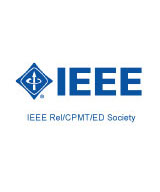
The IEEE Singapore Rel/CPMT/ED Society focuses on activities related to three societies of the IEEE, namely the IEEE Reliability Society (focuses
on assuring reliability in the engineering disciplines of hardware, software, and human factors), the IEEE Components, Packaging, and
Manufacturing Technology Society (focuses the research, design and development of revolutionary advances in microsystems packaging and manufacturing),
and the IEEE Electron Devices Society (focuses on all aspects of engineering, physics, theory, experiment and simulation of electron and ion
devices involving insulators, metals, organic materials, plasmas, semiconductors, quantum-effect materials, vacuum, and emerging materials).
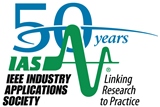
The IEEE Industry Applications Society, as a transnational organization, focuses on the advancement of the theory and practice of electrical
and electronic engineering in the development, design, manufacture and application of electrical systems, apparatus, devices and controls to
the processes and equipment of industry and commerce; the promotion of safe, reliable and economic installations; industry leadership in energy
conservation and environmental, health, and safety issues; the creation of voluntary engineering standards and recommended practices; and the
professional development of its membership.
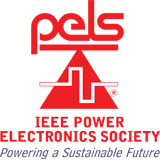
The Power Electronics Society is one of the fastest growing technical societies of the Institute of Electrical and Electronics Engineers (IEEE).
For over 20 years, PELS has facilitated and guided the development and innovation in power electronics technology. This technology encompasses
the effective use of electronic components, the application of circuit theory and design techniques, and the development of analytical tools
toward efficient conversion, control and condition of electric power. Our 7,000 members include preeminent researchers, practitioners, and
distinguished award winners.
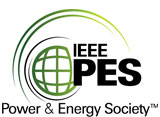
The IEEE Power & Energy Society (PES) provides the world's largest forum for sharing the latest in technological developments in the electric
power industry, for developing standards that guide the development and construction of equipment and systems, and for educating members of the
industry and the general public. Members of the Power & Energy Society are leaders in this field, and they — and their employers — derive
substantial benefits from involvement with this unique and outstanding association.

SINAPSE's vision is to house, under one inspirational roof, an Institute focused on research at the frontiers of cognitive science, technology development, and clinical and commercial translation. The Institute brings together basic scientists, computational scientists, experimentalists and clinicians, engineers, innovators and entrepreneurs.
Foundation of SINAPSE research: fundamental work involved in the frontiers of neuroscience, engineering, and medicine will enable discoveries and innovative solutions for the society. The pillars of the Institutes are engineering, clinical translation and creation of intellectual property. The research, development and translation are directed towards benefits to defense, industrial and society.


